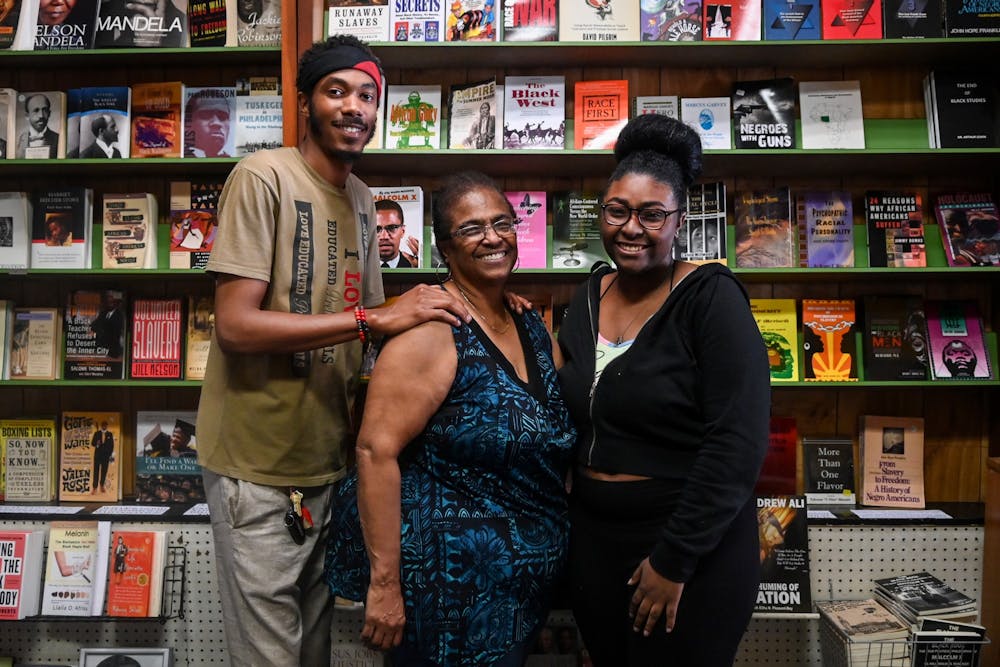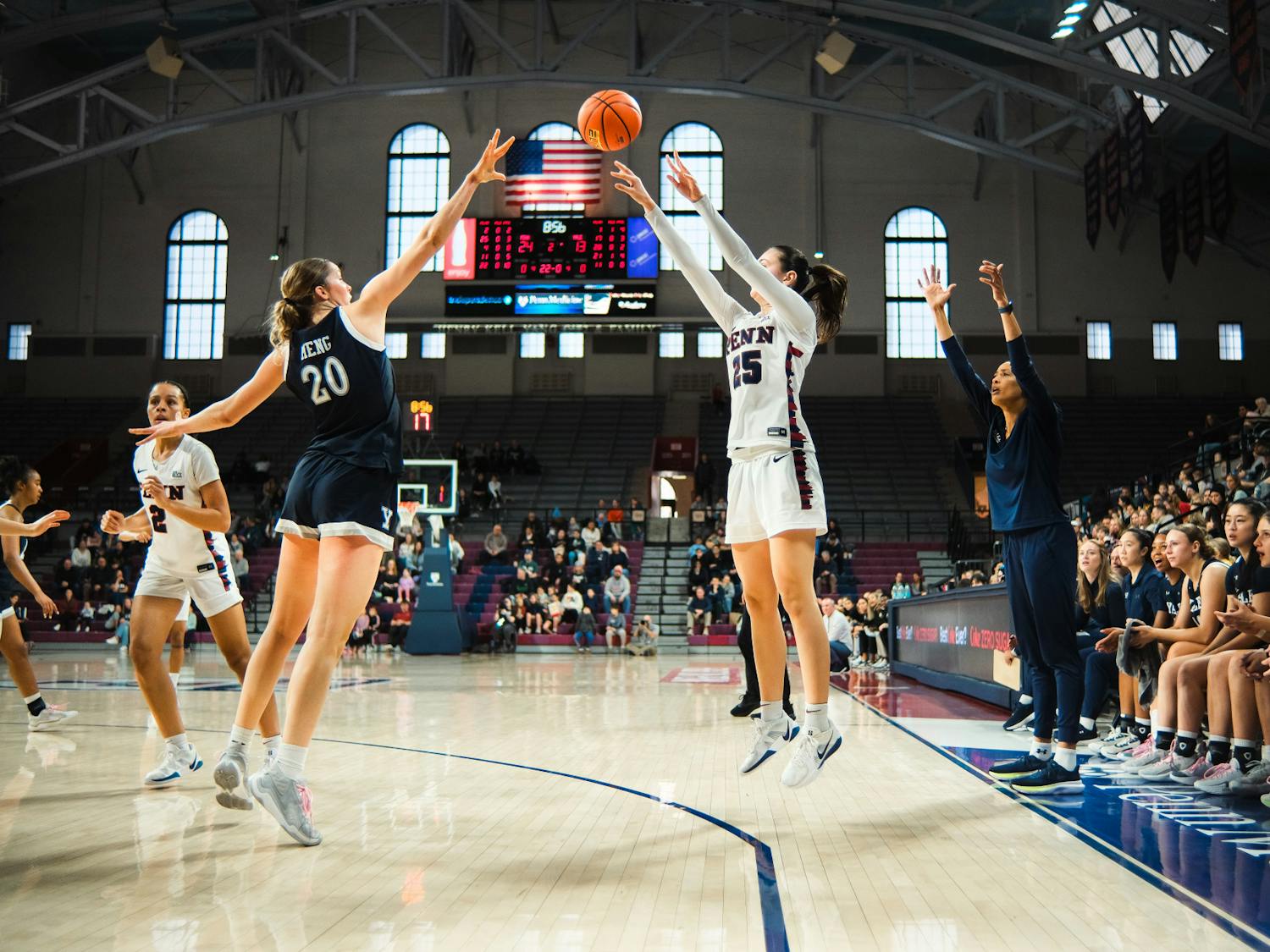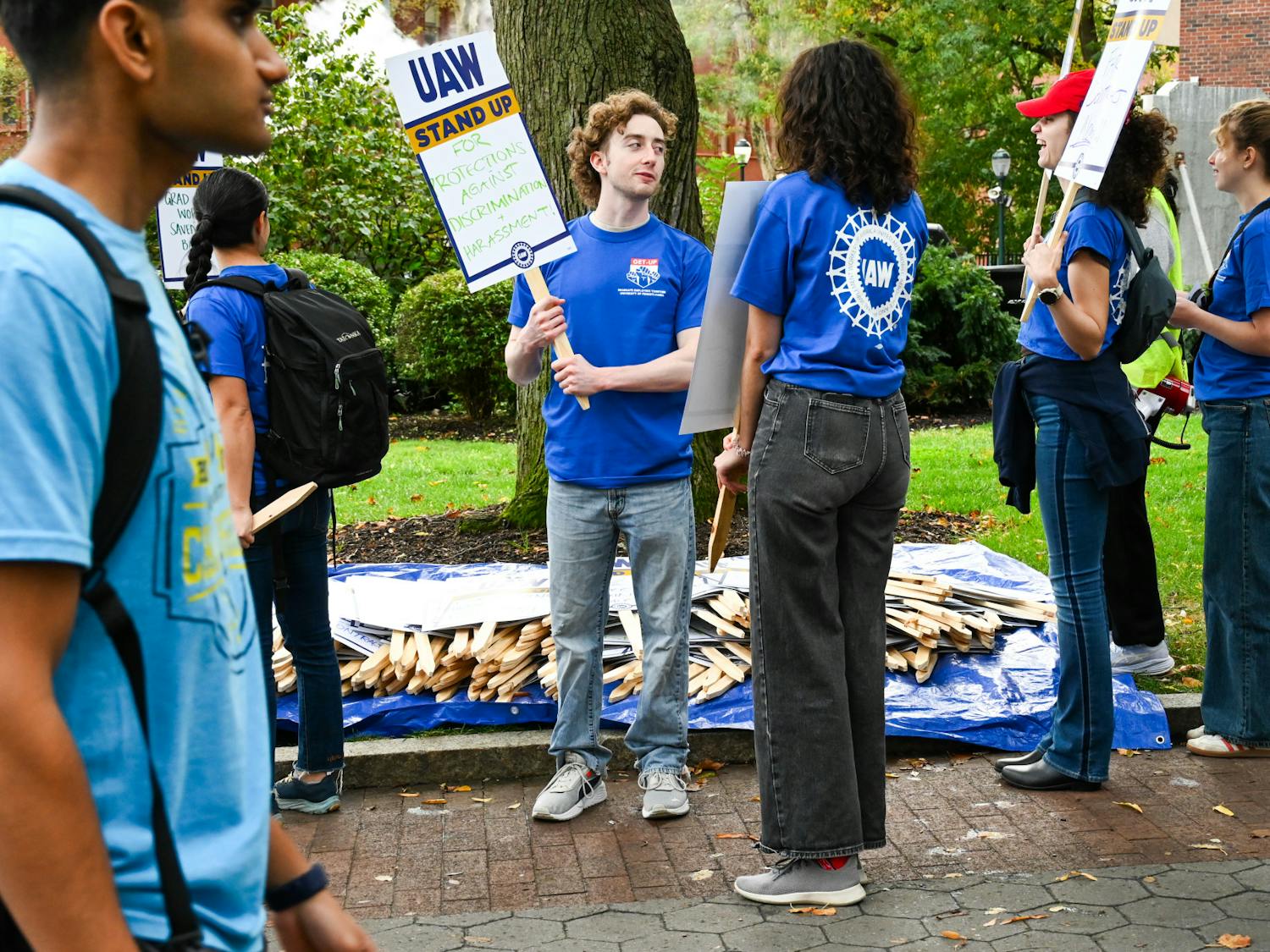Following this spring’s stay-at-home orders due to the COVID-19 pandemic, local businesses in West Philadelphia and University City suffered. Several restaurants and bars in the area, including Smokey Joe’s, rely on student business and were devastated by the decrease in customers after many Penn students did not return to campus after spring break.
Civil unrest and protests against systemic racism this summer also led to the destruction of some local business on the 52nd Street commercial corridor. As the Black Lives Matter movement reached its peak, increased calls for racial justice also benefited some Black-owned businesses, such as Hakim’s Bookstore, which was buoyed by the demand for anti-racist literature.
While many businesses were forced to close their doors, Acme Markets opened in place of The Fresh Grocer, drawing a long line of eager students as well as complaints about high prices.
March 17 — In order to curb the spread of COVID-19, Philadelphia ordered all nonessential businesses, like gyms, movie theaters, and bars to close. Restaurants were also required to halt indoor dining.
Hummus Grill and Smokes' both temporarily closed down after the lack of Penn students and new restrictions left owners unable to make a profit. Copabanana and Allegro Pizza and Grill shifted to a takeout-only model.
The popular Spruce Street food truck Lyn's lost 80% of its business once Penn depopulated campus. Students rallied to support the truck with a GoFundMe page that raised over $3,300.

June 9 — Avril 50 reopened after closing in March due to COVID-19, and New Deck Tavern began preparations to reopen for the first time in three months.
RELATED:
Medical experts discuss obstacles to COVID-19 vaccine distribution at Penn panel
Philadelphia restaurant owners sue Mayor Jim Kenney and Phila. over indoor dining ban
Although Copabanana remained open during the spring, the restaurant’s owners were forced to decrease staffing from 30 employees to only four or five, as the restaurant lost nearly 60% of its business. After Pennsylvania Gov. Tom Wolf signed a law in May allowing bars and restaurants to sell cocktails to-go, Copabanana was able to recover financially. Smokes', however, did not find the alcohol to-go sales as beneficial, and lost 70-80% of its business. Allegro earned nearly as much revenue as it would have during a normal year by maintaining pizza takeout and delivery sales.
June 15 — Like many local businesses, Hakim’s Bookstore experienced a decrease in sales after the onset of the pandemic. The Black Lives Matter movement, however, led to a huge influx in orders for the Black-owned bookstore this summer.
The West Philadelphia store has been a hub for Black literature in the area since its 1959 founding, making it the first and oldest African American bookstore on the East Coast. The nonessential business was forced to close its doors on March 16, receiving only the occasional mail order until demand for anti-racism resources from Black-owned bookstores spiked this summer.
The store’s owners soon converted the main room into a shipping center to mail out copies of books that were in high demand, including "White Fragility" and "The New Jim Crow."
June 22 — New Deck Tavern reopened in June after three months of shuttered doors. In order to comply with city regulations, New Deck Tavern’s owners had to rearrange seats and tables and install a large plexiglass partition on the bar to protect the bartenders.
Even after reopening for outdoor dining, the restaurant could only serve at limited capacity. At the maximum allowed occupancy, the restaurant made only around 25% of the revenue it would have brought in on a typical summer day.

July 21 — Penn announced a $100,000 donation to rebuild the commercial corridor of 52nd Street in West Philadelphia after businesses there suffered losses from COVID-19 and civil unrest. Many of the businesses were already at risk of closing when protests following the police killing of George Floyd caused damage to about 80% of the storefronts.
The donation was made to the Enterprise Center's Community Development Corporation, which aims to promote the corridor while protecting its historic identity. The Enterprise Center had already been providing grants to keep the struggling businesses afloat.
Oct. 23 — The fall semester saw the long-awaited grand opening of Acme Markets at 40th and Walnut streets, taking the place of The Fresh Grocer, which closed in March.
Local residents and students lined up hours ahead of the 6 a.m. opening to secure deals, including free bags of groceries and discounted vegetables. Students voiced excitement to again have a grocery store located so close to campus.
They also praised the store’s numerous stations, including sushi, poke bowls, Asian hot eats, focaccia pizza, and BBQ. Some, however, were disappointed with the store’s higher prices compared to Fresh Grocer.

Nov. 20 — Smokes', which had previously been operating at 50% capacity reopening, was forced to close indefinitely in November after the city of Philadelphia instituted new guidelines banning indoor dining to slow the spread of COVID-19.
The bar had seen an increase in attendance at its Thursday night "Quizzo" events this semester, which Smokes' owner Paul Ryan attributed to "[COVID-19] fatigue" among Penn students. The restrictions are currently in effect until Jan. 1 but may be extended.









